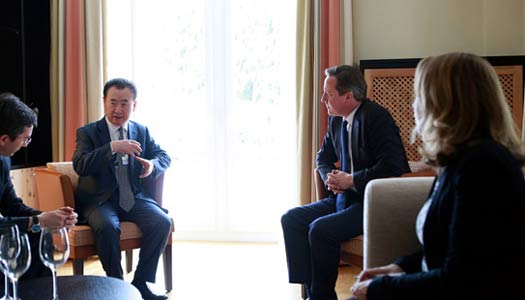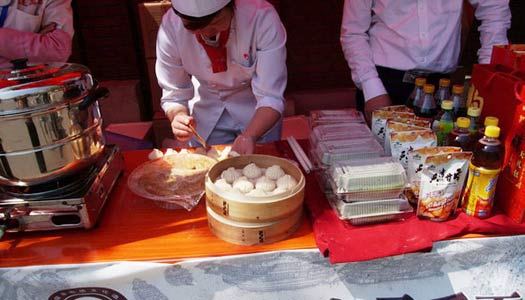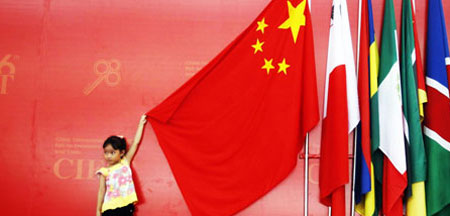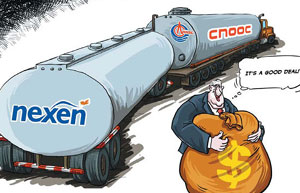Private power
Updated: 2012-10-26 13:25Integration challenge
Though challenges are aplenty for Chinese companies, many of the younger players often find it difficult to properly integrate resources in the global arena, as they grow in scale.
|
 |
| Liang Xinjun |
"In many cases, even if the Chinese companies get all the required approval for the acquisition, they find it difficult to effectively integrate the resources globally. This is a major obstacle for global expansion," says Liang Xinjun, CEO and vice-chairman of Fosun group, one of China's largest privately owned conglomerates.
Liang says that many foreign companies can allocate resources globally in an economical and profitable manner, such as choosing some countries where production costs are quite low as a manufacturing base, and selling products to the most profitable markets.
For most of the Chinese companies the overseas expansion starts with investment in overseas projects, followed by posting of Chinese employees and then repatriating the finished products to China for global sales. This is not exactly what one would call as "going global" or integration, he says.
He says what distinguishes Fosun from other companies is that it not only invests in overseas companies but also brings the foreign brands to China.
"This automatically raises the company's global brand recognition. Because of our deep understanding and the attraction of domestic market to foreign companies, this model of international cooperation has a higher possibility of success," Liang says.
The philosophy behind such moves is to marry China's growth momentum with the world's resources, he says.
"The European debt crisis has dented market confidence. But it has also provided us with much confidence to invest in overseas markets at reasonable prices," he says, adding that European and US companies that are in innovative fields such as pharmaceuticals research could be possible M&A targets.
In 2010, Fosun acquired a 7.1 percent (now 10 percent) stake, for 44 million euros, in French resort operator Club Mediterranean SA.
Liang says Fosun has helped Club Med attract more tourists and raise its profile by encouraging affiliate companies and clients to spend holidays at Club Med resorts. Club Med made a profit of 2 million euros globally last year. In 2010, it suffered a loss of 14 million euros.
Lu with UIBE says that to be successful in the global market, companies should have full understanding of the local market, laws and regulations, strong product competence and distribution competence.
"One should not be afraid to do as the Romans do. It is a good way to go hand-in-hand with foreign companies in the domestic market, as China is endowed with a fast growing middle class and growing consumption power. In the domestic market, the risks are relatively less than going to unfamiliar foreign markets."
The rising Chinese private companies are also confronted with other severe challenges such as rising raw material and labor costs as well as shrinking market demand.
These challenges, coupled with a bleak global financial situation and tight monetary policies in the domestic market, have been a temporary setback for some private companies, especially the SMEs.
Wenzhou, a city in East China's Zhejiang province known for its booming private sector, was one of the regions that was severely affected by the recent private debt crisis. Last year, about 100 leaders of private companies in the city were reported to have committed suicide or declared bankruptcy, leaving behind debts of about 10 billion yuan.
Jin Zhimian, 32, former president of Wenzhou Jinkang Optics, says the business climate in Wenzhou, especially for the SMEs, has become gloomier this year.
During an earlier interview, Jin had said that he had to lay off nearly half of his employees due to the uncertain market conditions. In July, he was forced to shut down operations after barely scraping though during the first six months.
"It is probably the most difficult period I have ever experienced in my life. It is just too hard to survive," says Jin.
- BYD exports three electric cars to Thailand
- Grid gets first jolt of residential solar power
- US now largest buyer of China's exports
- China's outbound M&As on the rise
- Tobacco control may entail price, tax rises
- Quanzhou becomes pilot financial reform zone
- New automobiles shine at Geneva Motor Show
- World's longest high-speed rail 'on track'
- Jiugui Liquor involved in plasticizer scandal again
- Accident reignites school bus safety concerns
- China to revise labor law
- Trademark registration under scrutiny
- Dinner ban takes toll on liquor firms
- CIC tables bid for London's Chiswick Park
- Property buyers eye overseas market
- Call for law to protect personal information
- China to cut train ticket prices
- Christmas business
- Solar industry to get jolt from new policies
- KFC chicken under spotlight















